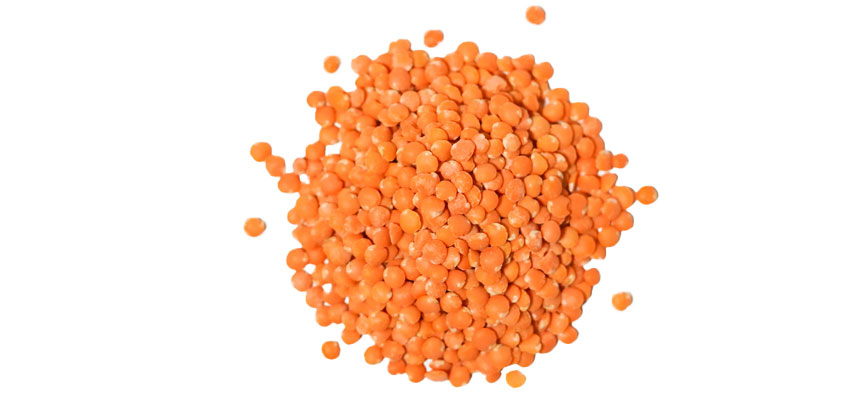In recent years, plant-based meat alternatives have become one of the most popular topics in healthy nutrition and vegetarian diets. Growing public awareness of the impact of animal meat on human health, the environment, and animal welfare has led to widespread acceptance of plant-based meat products.
This article aims to provide scientific, practical, and applicable information about plant-based meat alternatives, plant protein, and plant-based foods. It is suitable for general readers, business owners, startup founders, and researchers.
What Are Plant-Based Meat Alternatives?
Plant-based meat alternatives are products that mimic the taste, texture, and nutritional value of animal meat without using meat. These products are made from plant protein sources such as soy, peas, lentils, beans, and mushrooms. With the help of modern technologies like protein isolation, texture homogenization, and natural flavoring, they offer an experience similar to real meat.
These alternatives can take the form of plant-based burgers, sausages, vegetarian meat, plant kebabs, and even processed products similar to ready-to-eat meats. Their main goals are to reduce dependence on animal meat, protect the environment, and provide healthier nutritional options.
Read more: Innovation Management Important in the Food Industry
Benefits of Plant Protein for the Body
Plant protein offers numerous health benefits:
- Reduced risk of heart disease: Plant proteins contain no saturated fats and lower LDL cholesterol, a key factor in heart disease.
- Weight management: Plant-based products generally have fewer calories and less fat compared to processed meat, making them helpful for weight control.
- Digestive health: Fiber in legumes and vegetables supports bowel function and prevents constipation.
- Reduced inflammation and cancer risk: Plant compounds such as polyphenols and antioxidants help lower inflammation and protect against certain cancers.
- Overall health support: Plant protein, along with vitamins and minerals like iron, magnesium, and potassium, improves metabolism and overall body function.
The Best Plant-Based Meat Alternatives
Some of the most popular and nutritious plant-based meat alternatives include:
- Soy and soy products (tofu and tempeh): Rich in complete protein and isoflavones, beneficial for heart and bone health.
- Pea and lentil protein: Excellent sources of protein and fiber, supporting gut health and blood sugar regulation.
- Mushrooms and mushroom-based products: With a meaty texture, high in antioxidants and B vitamins.
- Plant-based meat (PBM): Burgers, sausages, and other alternatives created with advanced technology to mimic the texture and taste of real meat.
- Organic meat alternatives: Products made from natural ingredients without chemical additives, suitable for long-term health.

How to Make Plant-Based Meat Alternatives at Home
Homemade plant-based meat alternatives can be prepared using combinations of legumes, vegetables, spices, and plant-based flours. For example, mixing cooked chickpeas, soy flour, chopped vegetables, and preferred spices can create a homemade vegetarian meat with a texture similar to real meat.
Delicious Plant-Based Meals
One of the main concerns for those reducing meat consumption is the fear that meals will become bland or monotonous. However, plant-based cooking is highly diverse and can provide delightful experiences.
Quick and simple everyday meals:
- Plant-based burgers made with beans, lentils, soy, and aromatic herbs
- Vegetarian tacos with beans, corn, and avocado
- Vegetable pizza with vegan cheese and mushrooms
Traditional dishes with plant-based twists:
- Iranian stews like Gheymeh and Ghormeh Sabzi made with soy or mushrooms instead of meat
- Plant-based kebabs with vegetable skewers, tempeh, or tofu
- Various soups and Ash with legumes and assorted vegetables
International dishes:
- Indian lentil curry (Dal)
- Middle Eastern falafel and hummus
- Mediterranean pasta with vegetables and olive oil
A key principle in plant-based cooking is the use of fresh spices, healthy oils (such as olive and sesame oil), and nuts (almonds, walnuts, pistachios). These additions enrich the flavor of dishes and eliminate the need for meat.
Plant Protein for Athletes
Athletes are often concerned about protein intake and muscle recovery. However, when properly combined, plant-based protein sources can be just as effective as animal protein.
Key Sources of Plant Protein
- Soy, tempeh, and tofu: Complete proteins containing all essential amino acids
- Chickpeas and lentils: Rich in protein, fiber, and minerals
- Plant-based protein powders, such as pea protein, brown rice protein, or blends
Timing of Consumption
- Consuming plant protein immediately after exercise (for example, a pea protein shake with almond milk) promotes faster recovery.
- Combining protein with carbohydrates (such as lentils with brown rice) enhances absorption and facilitates energy storage.
Benefits for Athletes
- Reduced post-exercise inflammation due to antioxidants
- Easier digestion and prevention of gastrointestinal issues
- Support for improved endurance and faster recovery
Meat Alternatives Without Animal Meat
Plant-based meat alternatives include:
- Plant-based burgers and sausages
- Vegetarian “meat” products
- Organic kebabs and burgers
These products have a taste and texture similar to real meat and are suitable for vegetarian diets, reducing meat consumption and protecting the environment.
Plant-Based Diet and Weight Loss
One of the main reasons people turn to a plant-based diet is weight control and fitness.

Why does a plant-based diet help with weight loss?
- Lower calories: Plant proteins and foods usually contain less saturated fat.
- Longer satiety: Fiber in legumes and vegetables prevents early hunger.
- Control of food cravings: Stabilizes blood sugar levels and prevents overeating.
Key Tips
- Use whole grains (brown rice, quinoa, oats)
- Avoid processed and high-fat plant-based foods
- Increase fresh and raw vegetables to create more volume with fewer calories
Meat Substitutes for Vegetarians
Vegetarians can use a wide variety of plant-based products to meet their protein needs:
- Tofu, tempeh, and soy
- Plant-based meat and veggie burgers
- Organic meat substitutes made from natural ingredients
Using these products ensures a diverse, nutritious, and appealing diet while fully meeting the body’s protein requirements.
The Impact of Plant Protein on Heart Health
Plant-based diets have a direct connection with heart health.
Mechanism of Action
- Lowering LDL cholesterol
- Reducing blood pressure due to the potassium in legumes
- Decreasing inflammation with polyphenols and antioxidants
Scientific Findings
Studies have shown that people on high-protein plant-based diets are up to 20% less likely to develop heart disease.
Heart-Healthy Plant Foods
- Lentils and chickpeas
- Soy and tofu
- Nuts (such as almonds and walnuts)
- Seeds (chia and flax)
Plant-Based Meat and Innovation in Plant Products
Plant-based meat, developed with advanced technologies, creates a taste and texture similar to real meat. These innovations increase consumer acceptance of plant-based products and expand the market for meat alternatives.
Plant Protein Sources
The variety of plant protein sources is vast and can fully meet the body’s needs.
- Legumes: Lentils, chickpeas, beans, mung beans
- Soy and its products: Tofu, tempeh, soy milk
- Seeds: Flax, chia, sesame
- Nuts: Almonds, pistachios, walnuts
- Whole grains: Quinoa, oats, brown rice
- Plant-based protein powders: Pea, rice, or blended proteins
Important Note: Combining sources (such as lentils with rice or legumes with nuts) provides all the essential amino acids the body requires.

What Are the Benefits of Plant-Based Meat?
Plant-based meat is not merely a substitute for animal meat; it also has independent and significant benefits.
For Personal Health
- Reduces cholesterol and saturated fats
- Prevents type 2 diabetes
- Improves gut function and reduces constipation
- Increases intake of vitamins and minerals
For Athletes
- Supports muscle growth without straining the kidneys
- Reduces inflammation and accelerates recovery
For the Environment
- Reduces the consumption of water and land resources compared to livestock farming
- Lowers greenhouse gas emissions and carbon footprint
For Animal Welfare
- Eliminates the need for industrial livestock farming
- Supports animal rights
Conclusion
Plant-based meat alternatives are not only considered healthy and sustainable options, but they also pave the way for innovation in the food industry and the development of related businesses. By using plant-based protein sources, vegetarian meat, and organic products, it is possible to maintain a balanced, healthy, and delicious diet. These products also help reduce the negative environmental impacts of animal meat and support animal welfare. Brands such as Grownida, by offering high-quality and organic products, provide a new and scientific experience in the plant-based meat market.
Frequently Asked Questions
What is a meat alternative?
Meat alternatives are products that provide plant-based protein with a taste and texture similar to meat.
What is the best plant-based protein?
Soy, lentils, chickpeas, and vegetarian meat products are among the best sources of plant-based protein.
What are the meat alternatives for vegetarians?
Tofu, tempeh, soy, vegetarian meat, and organic products are suitable substitutes for vegetarians.
Is plant-based protein sufficient?
By consuming a variety of plant-based protein sources and complementary products, the body’s protein needs can be fully met.
What are the benefits of plant-based meat?
Plant-based meat helps reduce cholesterol, supports heart health, lowers inflammation, and preserves the environment.

